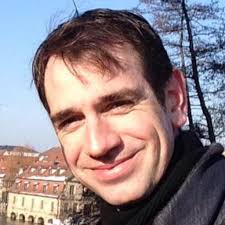Qualitative Social Process Analysis
Date
July 12, 2019
Instructor
Dr. Wouter Spekkink, Sustainable Consumption Institute, Univesity of Manchester

Wouter Spekkink is a Research Associate at the Sustainable Consumption Institute. His research focuses on various types of social processes related to sustainable development, such as the emergence and development of grassroots movements, and (sustainable) innovation processes in business.
Currently, Wouter is working as a postdoctoral researcher in a collaborative and interdisciplinary project that brings together various research groups from across the University of Manchester, as well as external stakeholders, in an effort to develop new approaches to tackling plastic waste.
Since his PhD project, a key element of Wouter’s research agenda has been the development of methods and techniques for longitudinal studies of social processes, with a particular focus on using graph-theoretical methods to visualise and analyse social processes, as well as networks of relationships between actors that are enacted in social processes.
This methodological program is developed in collaboration with Professor Frank Boons. Wouter has recently developed a software suite that supports in the application of most of the steps of this methodology, which is hopefully ready to be released in the near future.Descripiton of the seminar
Process and structure
In the seminar, Wouter will be introducing a graph-theoretical methodology for the study of social processes, as well as a dedicated software suite Q-SoPrA (Qualitative Social Process Analysis) that supports in the application of this methodology. As the name of the software suite suggests, the methodology and the accompanying software are focused first and foremost on qualitative analysis of social processes. The methodology involves (1) the creation of event datasets,, (2) the qualitative coding of data to qualify events (e.g., to identify types of events or attributes of events), to identify relationships between actors enacted in events, and to identify relationships between the events themselves (e.g., events that occur in response to each other), (3) the visualisation of the coded data in event graphs, network graphs, and occurrence graphs, and (4) synthesis of findings in a narrative. During the seminar Wouter will discuss the various steps in detail, paying particular attention to the three types of graphs used in the methodology, and the role that they play in the analysis of social processes. Wouter will also provide some background to the methodology by discussing its original sources of inspiration. Finally, Wouter will give some examples of the application of the methodology, highlighting the kinds of results that the methodology helps to produce.Software
In a second part of the seminar, Wouter will talk more in-depth about the Q-SoPrA software, which was designed specifically to support in the various steps of the previously discussed methodology. This includes a presentation of the underlying philosophy of the software, and an overview of the various widgets it consists of and their capabilities. This will be done mostly through live demonstrations in which the software will be used. Schedule
9.30-11.00, Social Process Analysis, Seminar B (room # ), Facultat d'Economia i Empresa
11.00-11.30, Coffe Brake
11.30-13.00, Software for social process analysis, Seminar B (room # ), Facultat d'Economia i Empresa
13.00-14.00 Almuerzo